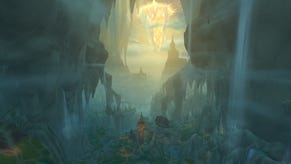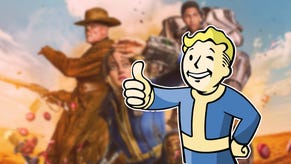Interview: Phil Harrison on Alone in the Dark and life after Sony
Atari rolled out the red carpet in London last week for its pre-launch showing of Alone in the Dark, flying in a tired-looking Phil Harrison from New York to intro the game and give a few interviews. Talking to the big man is always a pleasure, and this time especially so, given his recent move from SCEE where he'd been ensconced for the past 15 years.
Harrison was in the UK to talk about the Eden action-adventure, but did answer a few questions on what it's been like to join ex-EA boss David Gardner at Atari, the future of the firm in general, affirmation of his belief that unconnected single-players games are tomorrow's dodos, and how he's been busy making a bunch of new friends.
After the link.
Phil Harrison: Excuse me if I rub my face. I got off a plane from New York this morning, so I’m a little jetlagged.
VG247: No problem. A general question to start: how are you finding life at Atari?
I’m loving it. It’s great.
How different is it to SCEE?
It’s completely different in many ways and it’s the same in other ways. I’ve been here two months now and I’m making a whole new group of friends. It’s like changing schools when you’re a kid.
To talk about the game, then. You showed it off in America earlier this week, and I noticed you kept saying how impressed you were with it. Are you surprised by the quality?
Not surprised. I've known and have respected Eden for many years as a high quality developer, so I had high expectations. I think the reason I was surprised was that I hadn’t seen anything about the game before I joined the company, so it was on my first day in March that [the developers] took me through the presentation, and I was just like, "Wow, this is great. This is like a proper, triple A product."
And I also really admired their passion and their dedication to the cause. You know, they really believe that what they’re doing is special and different. That’s so nice to see in a developer.
You’ve been constantly using the phrase “triple A product” in relation to the game. Do you think that’s something that needs messaging?
It’s not for me to dictate it as a triple A product. It’s up to the users, the reviewers and the players to form that opinion, but I think it has all the hallmarks of a very well executed, widescreen triple A product. I think it’s right to use that phrase.
One of the concerns a lot of people have about Alone in the Dark is that there’s an awful lot of stuff going on in that game. There are an lot of new ideas in there. Do you think there’s going to be an issue with the cohesiveness of the story?
There’s no issue with the cohesiveness of the story, because the story’s incredibly compelling and will drive you through, will pull you through. The narrative structure works, the character development works and the ending is cracking. There are a lot of things that I think the player who is excited by strong narrative structure will find compelling.
At its heart, though, it is not an interactive movie: it’s a game. So you have to play it, and it’s a challenge to play. It’s not a game that plays itself. It’s not on rails. It’s not Dragon’s Lair, where you press buttons at the right time and progress through one big cut-scene from start to finish. It will challenge some players, and there are some players that will find he variety of gameplay mechanics to be challenging, but that’s one of the benefits of the episodic chapter-select structure. If you find one aspect of the game to be over-taxing, you can go and play another bit and come back to it at another time.
Online is the future, so we’re told. There doesn’t seem to be any online functionality in this game. Does that disappoint you?
It doesn’t disappoint me. Actually, I think Eden was hinting at something quite strongly in the episodic structure of the game, and their original intention was to deliver the game episodically. For some creative and technical and commercial reasons, that was not realised in the final product, and won’t be: it’ll only be available as a disc-based product at retail. But, by the way they’ve structured the episodes, and the way each episode has chapters and scenes, you can tell they were thinking about that potential future. So, I think they should be given credit for being quite visionary about that four years ago.
You’ve been very vocal in saying that the future of Atari is going to be quite different to that of the other publishers, and the impression seems to be that the plan is to expand into the casual space. This is very much a core product. Is this style of game the dinosaur of tomorrow? Do you see this continuing?
I think I’ve been picked up on saying this [Here – Ed]. I think the single-player, disconnected console game is probably in its dotage. Now, that doesn’t mean that those games aren’t relevant going forwards, but they will be enhanced by community features being embedded in them, or downloadable content becoming an inherent part of the experience, or some kind of user-generated content will be part of the experience. All of the things we see in other games, the things that we can point to in compelling games.
A relatively linear single-player game without online connectivity is going to be a challenge to green-light going forward.
So, you don’t anticipate making many more of these games at all, certainly not past this financial year. Is that correct?
Me personally? No. And I don’t think the industry will for much longer either.
What about in terms of general platform support? You were very careful in your intro today to specify that this was the 360 version. You’ve got the PS3 version coming out towards the end of the year: how important is it for you at this point to differentiate between the two products?
Well, we have to differentiate between the two products, but having the PS3 [game] come later gives us a second bite of the cherry, so to speak. But today’s all about the 360 game.
Right. Can you tell us anything about the PS3 version at all? Will there be any differences?
Today we’re here talking about the 360 game.
It looks very different to the majority of action games on the market. What is it specifically about Alone in the Dark that you think makes its viable?
Execution of the idea is very high throughout. The characterisation of the game is great, both visually and in terms of the story. We talked in the presentation about fire as an enemy or a friend, and the way that works procedurally inside the environment is really clever. The sophistication of the inventory system is very clever. The variety of gameplay, as we were touching upon, gives great value, and the fact is that you can finish the game. We want everyone to finish the game. It says something about Eden’s confidence in the story, that, for your money which you’ve saved and dedicated to this game, we want you to get all of that value back through the experience.
They did research about the number of people who actually finish games, and it’s really small. There’s a kind of economic insanity about this, both from the development perspective and from the consumer perspective. You’re paying £50 or £40, and you’re not getting all of the content back out. You don’t get to see it, or experience it all. And on the developer side, there’s the passion and creativity and time and effort in crafting an experience that only 10 or 15 percent of players will ever get to see. That sounds like a mismatch to me. So I really like Eden’s approach. What they’ve done is say, "Finishing a game s OK. It’s good to see the end of the game. That’s not a bad thing." Of course it’s OK. But very few developers actually say that.
Did you find the attitudes at Sony not quite as forward-thinking as the developers you’re working with now?
No, I wouldn’t say that at all. It’s not in any way a criticism of the talents that I’ve worked with in my previous career. It was very pleasant experience to spend some time with David and Tim at Eden and get a sense of their vision, which is as good as any I’ve come across in the industry.
One last question about Atari in general. Do you think the model you’re pursuing has more in line with the route’s Nintendo’s taken, which is basically not “the games industry” as such, but a different strand, if you like? If the more traditional games trade is Sony and Microsoft, do you see Atari following Nintendo into that broader sphere?
I think we can be influenced by and learn from a lot of the things that each of the console companies are doing. We can also be inspired by and learn from a lot of things that happen on the web. Some of the business models that happen on the web, and in the PC and mobile spaces we can bring back into the games space, but with a twist. One of the great benefits of my role is that we can experiment, and we can try things that are harder to do if you’re a platform holder, or are harder to do if you’re only a certain group of consoles. That’s what I’m finding very exciting.
Many thanks for your time.


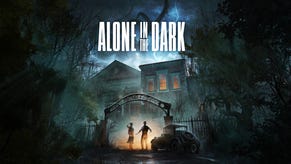
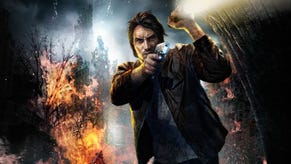
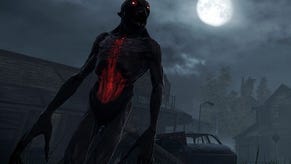
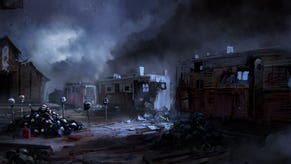
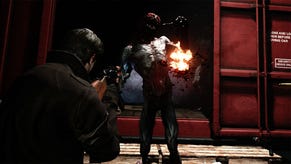
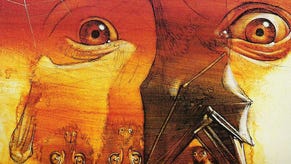


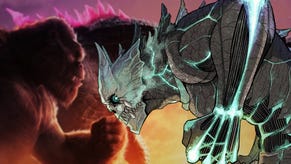
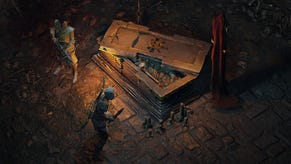
_ddwYK80.png?width=291&height=164&fit=crop&quality=80&format=jpg&auto=webp)
